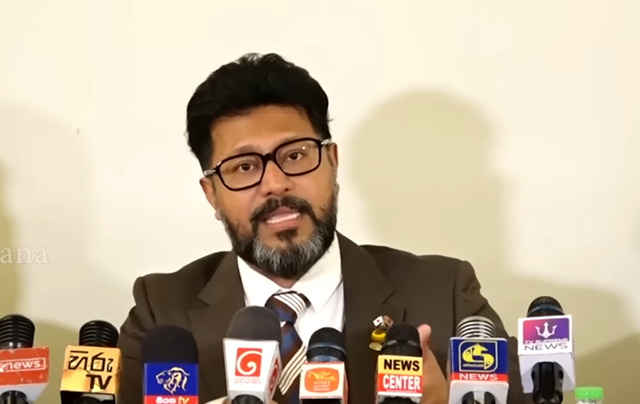
Secretary-General of the Global Federation of Sri Lankan Business Councils (GFSLBC) and entrepreneur Sajeev Rajaputhra has proposed a mechanism to export old vehicles from Sri Lanka and replace them with newer imports.
Speaking at a media briefing, he said vehicle prices in the country are artificially inflated and warned that this could become a problem when the existing fleet becomes obsolete.
“If the price of a vehicle in Japan is 100, when it arrives here with a 300% tax, the price becomes 400. The same vehicle will cost 500 or 600 when demand increases due to the market being closed,” he explained.
“When a vehicle reaches such a price, and the market eventually opens, prices will crash. This is why the market must also be protected. Right now, we have heavily inflated vehicle prices,” he added.
He further pointed out that Sri Lanka and Ethiopia are among the few countries where a vehicle can be bought, used for several years, and then sold at a higher price than its purchase cost.
“This bubble will burst at some point. Vehicles will become obsolete in five, ten, twenty, or thirty years. The question is, what will happen to their prices then?” he asked.
Rajaputhra suggested that exporting used vehicles could be explored as a solution, noting that some countries, including several in Africa, have no restrictions on the age of imported vehicles.
However, he acknowledged that exporting a vehicle from Sri Lanka for a profit is currently not possible due to high local market values and taxes, but proposed an alternative.
“If we export a vehicle to another country and sell it at a reasonable price there, there will be a significant gap between values here and abroad. If we can offset that gap by reducing the tax on the vehicle being imported, we can remove old vehicles from the country and replace them with newer ones,” he said.
He added that while this method would not generate direct revenue for the government, it could serve as a practical way to phase out old vehicles from Sri Lanka.
